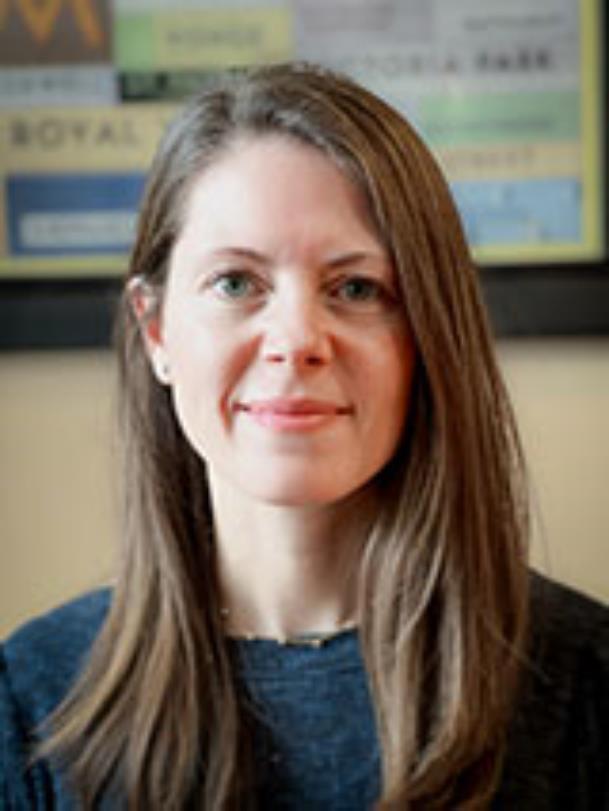Ceilidh Hart, an Associate Professor in UFV’s English department, achieved an Honours Bachelor of Arts in English at the University of Western Ontario, a Master of Arts in English at the University of Ottawa, and a PhD in English at the University of Toronto.
“I had really great professors and I think that I felt inspired by them,” said Hart. “I felt inspired to carry on with my studying of literature.”
Professor Hart originally thought she would study British Romantics in graduate school, but she veered in a different direction. She said that it was one of the seminar courses she took in her undergraduate degree called “The Canadian Gothic” that encouraged her to specialise in Canadian literature instead. In this course, she read both “old” and “contemporary” literature that was written by authors who had also lived in Canada. This helped her realise that literature was not just “out there,” but also “here” too.
Hart was “compelled” by her undergraduate professors’ teaching styles. She at first thought she would join a teacher’s college, but her experience in these seminar courses encouraged her to apply to a master’s degree program instead.
Currently, Hart is working on a book project described as “a study of the figure of the City Poet in Canada” from the 19th to the 21st centuries. This project “seeks to challenge the assumption that Canadian literature in general … is primarily rural.”
Hart said that poets in the 19th century were also interested in urban/city-focused issues. She explained how some poets used newspapers as a way to write about city-focused topics. These poets were shaping and being “shaped” by the city. Hart is interested in the way that “poetry enlivens city issues, [specifically] from the 19th century into the 21st.”
“[It’s] really productive to think about literature through the lens of the city rather than the nation,” said Hart. “A lot gets lost when we only apply a national framework.”
Hart is studying about “radio,” “spoken word organisations,” and “contemporary projects that cities are engaged in to get poetry into the street.” One poet Hart continues to reference for her current project goes by the pen name, “The Khan.” He had a regular column called, “Ballads of the City,” focused on what was happening in Toronto.
Hart’s doctoral research focused “on nineteenth century women’s writing and print culture.” She said that throughout this project, she encountered “incredible wealth” in 19th century newspaper archives. Her findings pointed to how women made a living in writing.
Hart’s project was a study on poetry that women were publishing in newspapers. She said that newspapers were a primary resource for reading in the 19th century, and that they were an avenue for women to make money.
Hart mentioned that literacy rates in people, including women, were climbing during the 19th century, so there was a huge market for publishing in newspapers. She chose this topic in particular because she realised there was still a lot of work to do in studying this topic and she wanted to contribute to it.
Although Hart doesn’t have a favourite author from the 19th century, she is fascinated by Isabella Valancy Crawford. “We have evidence (in the form of correspondence) that Crawford advocated for herself when it came to fair compensation,” said Hart. As Crawford got lots of her newspaper articles published, she made a “name” for herself. Despite her reputation, Crawford describes in a letter how she was not able to break through as successfully as a writer in the way that her male counterparts could.
Hart said that we do not always know the identity of writers; some wrote under pseudonyms.
In regards to teaching poetry and prose, Hart does not have a preference. She said that she loves surprising students and introducing them to literary things they may have not seen or thought about before. She loves the challenge embedded in poetry teaching, as lots of students lack confidence in writing about poetry.
Hart too remembers moments when she was a student and she read something that blew her away. She feels lucky to be in a job where she can see that happening to the students, when they get blown away themselves, whether it is in response to poetry or prose.
When asked what advice she would give to students who are hoping to get a master’s or PhD in English, Hart says that these students should find something to study that they are genuinely interested in learning about.
Jade is an English Honours: Creative Writing student. She plans on pursuing an MFA in Creative Writing after graduating from her undergraduate degree. When she’s not in class or studying, she can be found doing karaoke at a local restaurant in hopes of getting noticed and signed to a record deal.



